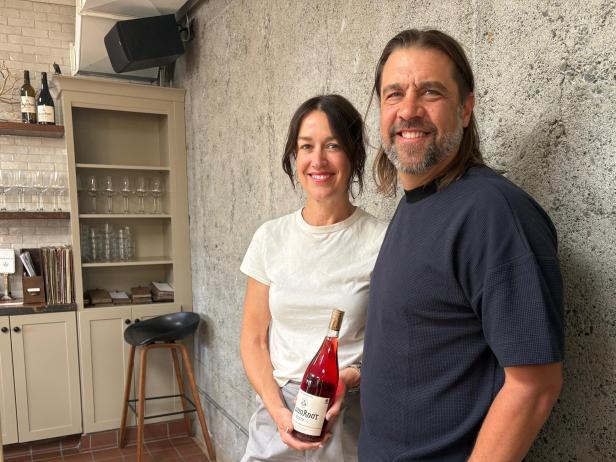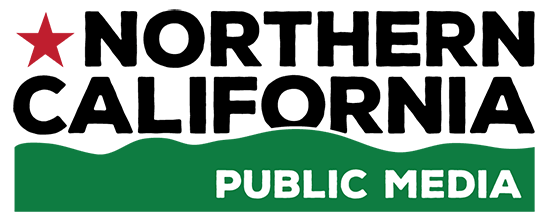 photo credit: Tina Caputo
photo credit: Tina CaputoBloodRoot and Reeve co-owners Kelly and Noah Dorrance.
Wine sales are down, production costs are up, and many California wineries are feeling the squeeze. In Sonoma County, that’s led to some tough decisions for wineries — including layoffs and even closures. Instead of facing the market challenges alone, six small wineries are joining forces to create a different kind of business model: Overshine Wine Collective.
The Healdsburg-based venture formed in July when former Google executive David Drummond purchased BloodRoot and Reeve, along with Martha Stoumen Wines.
Drummond already owned Idlewild, Overshine Wine Company and Comunità Wines. Though Drummond now owns all of the wineries, each founder has an equity stake in the new venture.
“With this, we are all kind of coming together at the same time,” said Noah Dorrance, co-founder of BloodRoot and Reeve Wines.
Dorrance is also a managing director at the new Overshine venture.
“We're kind of building this from the mindset of small wineries getting together and building the type of structure that's going to work the best for us," Noah Dorrance said. "So it's kind of like an inside-out approach instead of an outside in-approach.”
Under the collective, Dorrance said, wineries can take advantage of economies of scale. And centralize unromantic tasks like compliance and finance.
“There's no winery that likes to do that part of it, and it's something that's actually pretty easy to take off the plate of a small winery and not change anything about the real magic of the brand or the dynamics of the brand,” Dorrance said. “It's just this thing that can be done more efficiently by a centralized group of people… better and more cost effective.”
Winemaker Sam Bilbro, the founder of Idlewild Wines and a co-manager of the collective, said the business model also allows small wineries to do something they could never afford to do on their own—hire a national sales team to sell their wines.
“Even if you're a great jack of all trades, at some point there's someone who probably does some part of this better than you do,” Bilbro said. “And if you can all home in on each other's differences to become stronger, I don't see any way in which that doesn't make more sense.”
Though the Overshine wineries share an ethos of low-intervention winemaking, Bilbro said, they don’t see themselves as cutthroat competitors. Instead, they’re excited to learn from each other as they grow.
"I don't think any new creative-spark ideas come out of that space where you're afraid of competition,” Bilbro said. “Some form of cooperation will only benefit small wineries… it actually just takes good conversation, willingness to discuss things that aren't always comfortable with friends. But if you do that, it's just like any relationship. We stand to succeed by learning how to work together.”
If Overshine can do that, the collective model might just provide a way forward for other small wineries.

 Live Radio
Live Radio